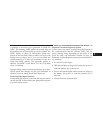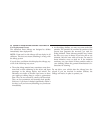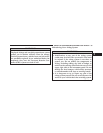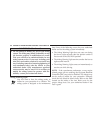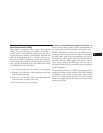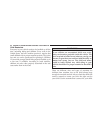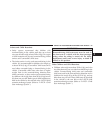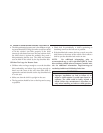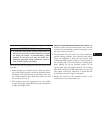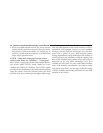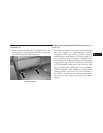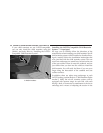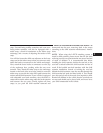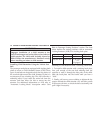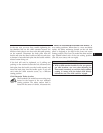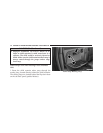
WARNING! (Continued)
•
A rearward-facing infant restraint should only be
used in a rear seat of a vehicle that does not have
an airbag off switch. A rearward-facing infant
restraint in the front seat may be struck by a
deploying passenger airbag, which may cause se-
vere or fatal injury to the infant.
Here are some tips for getting the most out of your child
restraint:
•
Before buying any restraint system, make sure that it
has a label certifying that it meets all applicable Safety
Standards. The manufacturer recommends that you
try a child restraint in the vehicle seats where you will
use it before you buy it.
•
The restraint must be appropriate for your child’s
weight and height. Check the label on the restraint for
weight and height limits.
•
Carefully follow the instructions that come with the
restraint. If you install the restraint improperly, it may
not work when you need it.
•
The Extended Cab first, and Crew Cab second row
outside seating positions, have cinching latch plates.
These are designed to keep the lap portion tight
around the child restraint so that it is not necessary to
use a locking clip. If the seat belt has a cinching latch
plate, pulling up on the shoulder portion of the
lap/shoulder belt will tighten the belt. The cinching
latch plate will keep the belt tight; however, any seat
belt system will loosen with time, so check the belt
occasionally and pull it tight, if necessary.
•
Buckle the child into the restraint exactly as the
manufacturer’s instructions tell you.
2
THINGS TO KNOW BEFORE STARTING YOUR VEHICLE 65



